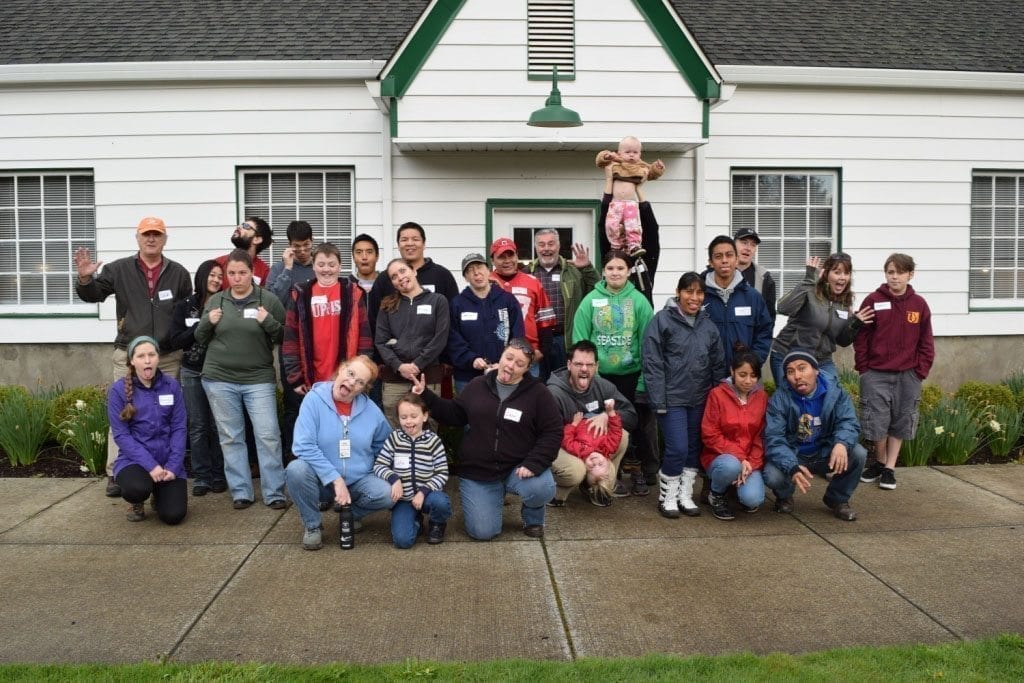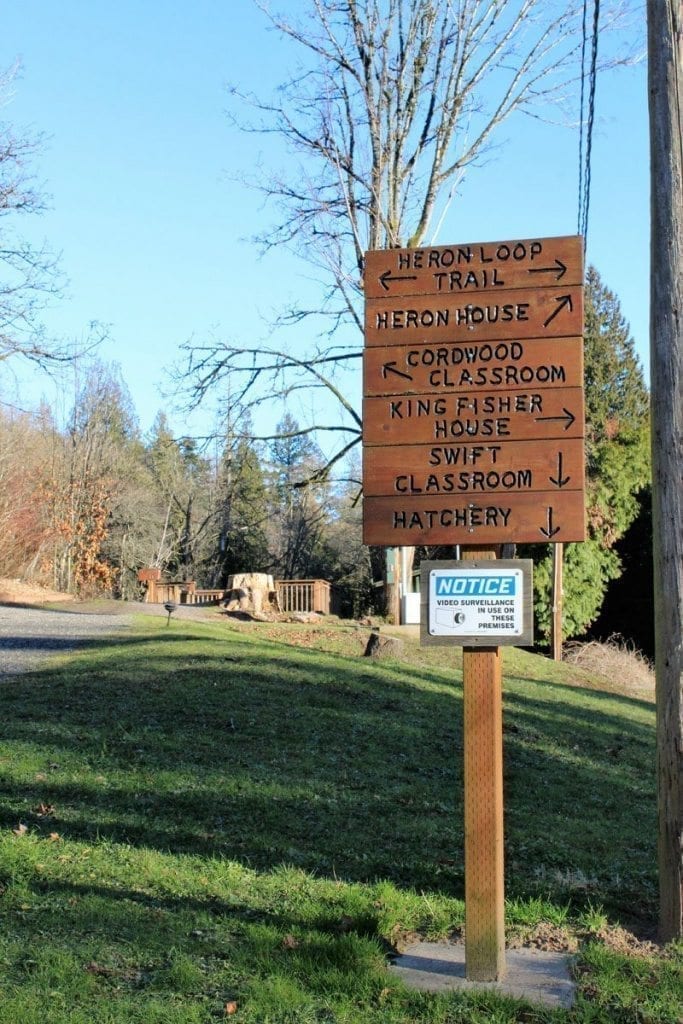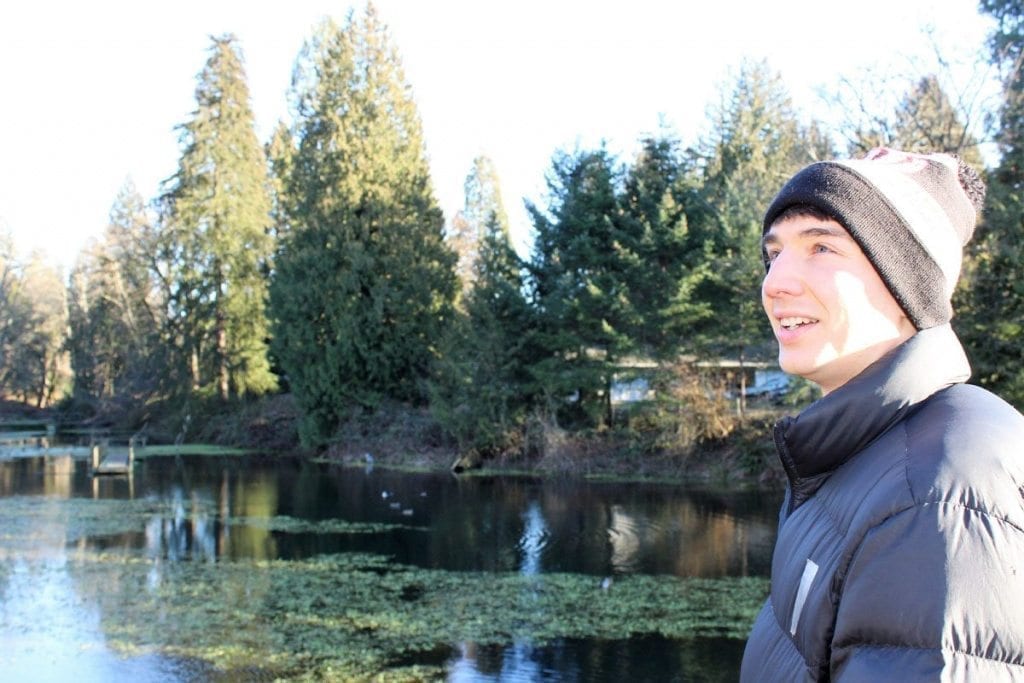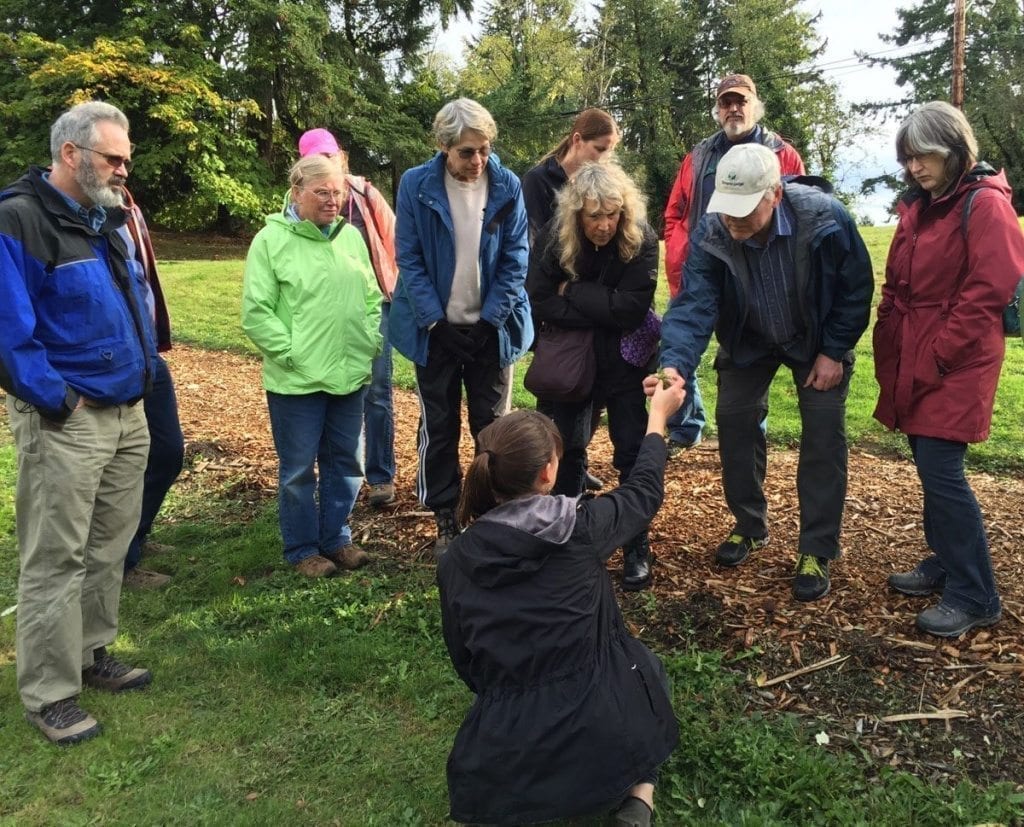VANCOUVER — If one of your resolutions for the new year is to give back to others and you love learning about natural resources and local history, Columbia Springs may have the perfect opportunity for you.
Located just a few miles east of downtown Vancouver, along the historic Evergreen Highway, the nonprofit Columbia Springs is many things: a city park, a fish hatchery, the historic site of the Pacific Northwest’s first lumber mill, a protected natural area and an educational site for local school groups.
The 100-acre natural space, which includes two lakes, a series of trails, a fish-feeding pond and a fish hatchery, is open to the public from dawn to dusk each day. And with only six staff members, Columbia Springs is always looking for new volunteers.

In fact, the nonprofit offers volunteer opportunities throughout the year for folks who want to volunteer their time every now and then.
“The public comes out for the day to volunteer, and it’s great, but many of them we’ll never see again,” says Erik Horngren, the volunteer manager at Columbia Springs. “They’re just here for that one event.”
If you only have a day or two to volunteer, those opportunities are perfect, Horngren says. But for people who really want to dedicate their volunteer time to Columbia Springs — working at least 20 hours during their first year as a volunteer — the nonprofit’s Volunteer Lead program may be a better fit.
Volunteer Leads act as ambassadors for Columbia Springs. They might help with their monthly “Stewardship Saturday” volunteer programs, assist Columbia Springs staff with office work and spread the word to the greater Clark County community about what Columbia Springs has to offer.
“The Volunteer Leads help us with community outreach,” Horngren says. “We want to make sure as many people as possible know about us, know what we have here, so we like to go to different events like the Apple Tree Festival and the Home and Garden Idea Fair.”

Volunteer Leads are trained to do community outreach at such events, Horngren explains, allowing the Columbia Springs staff to say “yes” to attending more events and spreading the word that there is a free natural area available during daylight hours every day of the year.
Volunteer leads who get a little more training will be able to help lead the one-day volunteer events, maintain trails, remove invasive species, volunteer at the fish hatchery and help keep the natural urban area in tip-top shape.
To become a Volunteer Lead, a person must be age 16 or older, have an interest in natural resources and be willing to dedicate a minimum of 20 volunteer hours to helping Columbia Springs over the course of a year.

“We have a base of about 30 to 40 Volunteer Leads,” Horngren says. “Some have been with us for all five years of the program … and we ask them to do 20 hours in their first year, but we have multiple Leads who do more than 100 volunteer hours a year.”
Many of the Volunteer Leads are retirees looking to give back to their community, but Horngren says younger people — especially high school and college students looking for learning opportunities to help them get a natural resources-related internship or job — also train to be a Volunteer Lead.
Interested? The annual Volunteer Lead training at Columbia Springs will be held in just a few weeks, from 6 to 8:30 p.m., Wed., Feb. 1 and Thu., Feb. 2, at Columbia Springs, 12208 S.E. Evergreen Hwy., Vancouver. To attend, simply fill out the online application and turn it in by Tue., Jan. 31.

For people who have a little more time to give — particularly for those who have been in the education or community outreach professions — Columbia Springs is offering a new volunteer opportunity in 2017. The Volunteer Docents program requires a longer time commitment — volunteers must give at least 25 to 30 hours a year for at least two years, and the training takes place once a week on Saturday morning for a total of eight weeks — but the job might be more fun for volunteers who love educating the public, Horngren says.
“Retired teachers are a really good fit for the new Volunteer Docent program,” Horngren says. “Having teaching experience isn’t necessary, but it does help.”
The new Volunteer Docents program is hoping to build a core group of docents who can assist the public as they make their way around the 100-acre natural area — perhaps leading a trail hike around one of Columbia Springs’ two lakes, explaining the history of the site to visitors and maybe even pointing out the various flora and fauna that call Columbia Springs their home.
The new Volunteer Docent program has one annual training session and it starts this month. The docents-in-training will meet at Columbia Springs each Saturday morning from 10:30 a.m. to 12:30 p.m., starting on Sat., Jan. 28. The training is free. If you’re interested in being a Volunteer Docent, fill out the online application and submit it before Fri., Jan. 27.
For more information on either of these volunteer programs or on Columbia Springs and its many volunteer events, visit the nonprofit’s website at www.columbiasprings.org, email volunteering@columbiasprings.org, or call (360) 882-0936, extension 224.




